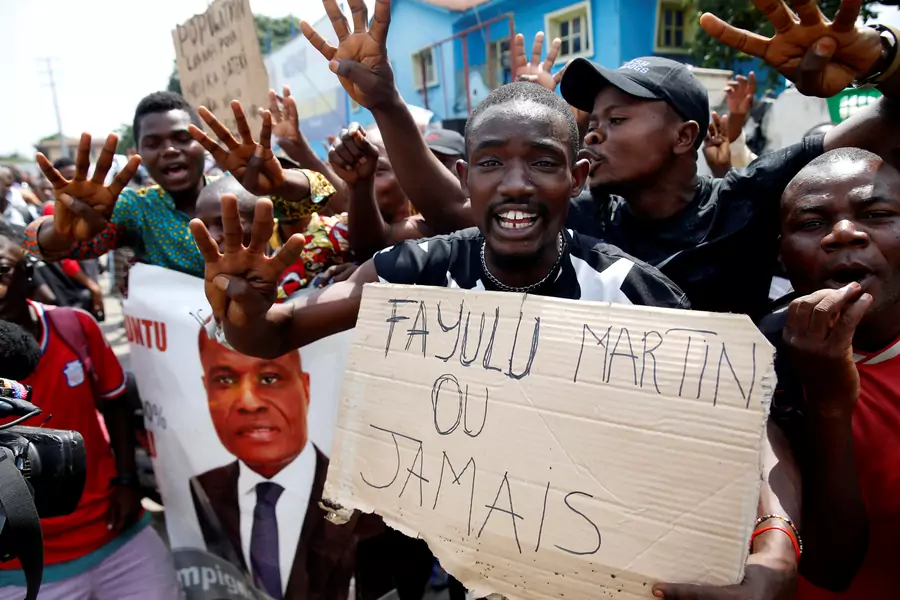Accountability Lacking in Congo Election Debate

The Democratic Republic of the Congo’s complicated and long-delayed elections ended with a surprise twist. Most of those riveted by the middle-of-the-night announcement of results had two likely outcomes in mind. Perhaps the less-than-independent electoral commission would announce that incumbent President Joseph Kabila’s handpicked successor had won—an outcome that would be fraudulent given his lack of popularity—but not surprising in a repressive and corrupt system. Or perhaps a new day would dawn for Congo, and the real winner—reported by many to be opposition coalition leader Martin Fayulu, who had a clear lead in pre-election polls—would be allowed to assume power.
Instead, another longtime opposition leader, Felix Tshisekedi, was declared victorious. Rumors abounded about a deal cut between Kabila and Tshisekedi before the announcement—one that would ensure protection for Kabila and his inner circle and access to power for Tshisekedi.
More on:
However, the fallout remains unclear. Fayulu is contesting the results, but the courts in Congo are as biased as the electoral commission. Regional powers are calling for a recount—a sound idea given the dubious parliamentary results that were announced alongside the presidential surprise—but simultaneously confusing is to propose a government of national unity.
One cautiously optimistic school of thought about the current state of affairs rightly acknowledges that this is an important change from the norm. The Congolese people, by voting in such numbers for opposition options, made it impossible to pretend that Kabila’s preferred candidate had won, disrupting plans for business as usual. They forced the regime to accommodate their desires—at least to a degree.
Another, more perplexing approach is embodied by the Southern African Development Community to call for a government of national unity. Ostensibly the notion that problematic and contested elections should end in unity governments is rooted in fears of instability. However, for Congo to overcome the violence and deprivation that have plagued it for decades, it needs a whole new model of governance. A unity government in which every major political player gets a slice of power does not move the country forward; it keeps it spinning its wheels in place. It sweeps the fact that the election’s most credible observers claim there was a clear winner under a rug of dubious cooperation and even more questionable utility.
Something important is missing from these analyses—accountability. At the end of the day, elections are about more than expressing the preferences of the electorate. They are about establishing the lines of accountability that give legitimacy to leaders. Right now, it certainly appears that Tshisekedi owes his victory to Kabila and the People's Party for Reconstruction and Democracy. That loss of connective tissue to the citizens of the country distorts accountability in ways unlikely to deliver the relief from predatory governance that the Congolese people crave. Likewise, a government of national unity solution has nothing to do with accountability to voters and everything to do with elites accommodating one another. Without accountability, there is little reason to anticipate better days for the long-suffering people of Congo.
More on:
 Online Store
Online Store